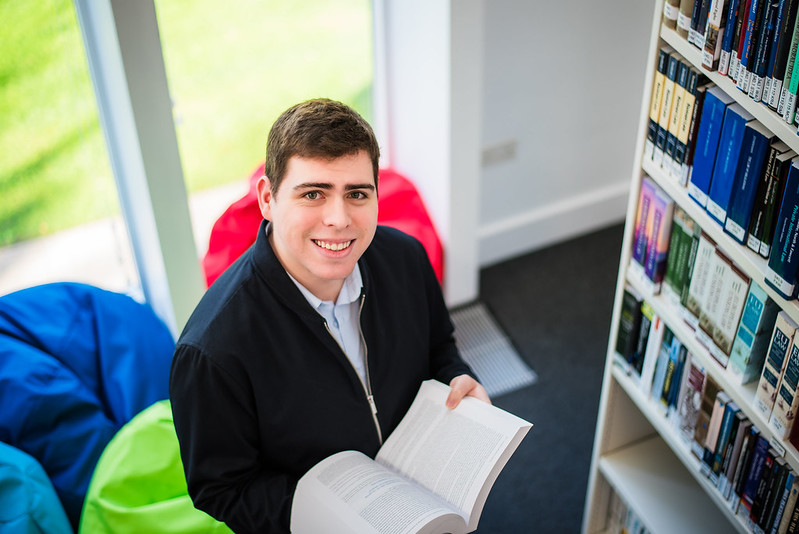Studying Linguistics at Cambridge
- UCAS Code: Q100
- Number of students per year: Approximately 30-35
- How many are admitted to Cambridge every year: 2023 cycle, 5 applications per place and 26 accepted
- Minimum offer: A*AA at A Level, 41-42 points at IB with 776 at Higher Level
- Essential subjects: None
- Useful subjects: Ancient or modern languages, mathematics, English language or literature
Linguistics is the systematic study of human language. Linguists explore how we communicate using language and how languages are structured.
You will study lots of different aspects of linguistics. One day you might be poring over a medieval text for evidence of how the grammar of a language has changed. The next, you may be learning about how the larynx creates sound energy for speech, or how we can record brain responses to language.
You will also cover a wide range of disciplines. For example, the study of meaning draws on philosophy, the analysis of the speech signal uses methods from physics and engineering, and the study of language acquisition draws on psychology.
From your second year, you can choose to specialise through optional papers, if there is a particular discipline that interests you.
The Faculty has many state of the art facilities including a Computer-Assisted Language Learning facility, a Media Centre and a Phonetics Lab. There are also bespoke language learning materials available at the Language Centre.
What can I do with a degree in Linguistics?
On the course you will gain transferable skills that are greatly sought after by employers.
Linguistics graduates find employment in a wide range of professions. Recent graduates have taken up roles at:
- Amazon
- the Foreign Office
Some students have also gone on to postgraduate study at top universities in the UK, Europe and North America.
The course also provides good preparation for vocational training, in fields such as:
- speech therapy
- teaching
- speech and language technology, for example, developing speech recognition and
- translation software
- law
- translation
- interpreting
- forensic linguistics
Being familiar with a range of languages is a huge advantage in careers where you need to learn unfamiliar languages quickly. For example, this can be very useful in the Diplomatic Service.

Studying Linguistics at St Edmund’s College
St Edmund’s has a large international community so you will always be exposed to different languages being spoken around the College. We have a small, close-knit community of students studying MML, Linguistics and related postgraduate courses.
The college offers several spaces where you can study and work on your essays including the Paul Luzio Library building, the Norfolk Library, study desks in the Mount Pleasant Halls Common room, the comfortable couches of the CR, in Edspresso or the benches in our lovely apple orchards!
We also have six study rooms (2 in the Luzio Building, 2 in Norfolk Building, and 1 in Mount Pleasant Halls) which can also be booked by students for their private study time or group projects.
Our college also has an extremely supportive Welfare and Wellbeing Department, which is happy to lend an ear and provide support should a student feel anxious or overwhelmed with the academic year.
How to Apply
Applications for all courses are made through UCAS. You must apply by 15 October 2025 to be considered for entry in October 2026.
We accept applications for Linguistics in both the October application round and the January application round. The January application round is specifically for candidates applying for certain subjects at the three mature Colleges at Cambridge (Hughes Hall, Wolfson, and St Edmund’s). The January round is particularly suited to those applicants taking one-year courses who may not have covered enough of the course content to apply in October, but are able to make a competitive application by January. The deadline for applications for the January round is 14 January 2026 for 2026 entry.
As a mature College, we recognise that our applicants come to us from a diverse range of educational backgrounds and may have studied a long time ago. However, we would expect evidence of formal study within the last two or three years as evidence of an ability to cope with the challenging academic nature of a Cambridge course.
Requirements
Written work
Tests
Interviews
Deferred entry
Affiliated students
What is a typical Term’s work
Part I provides a general introduction to all areas of linguistics, while Part II allows a degree of specialisation in particular areas.
In both Parts IIA and IIB, there is a choice of lectures taught within and beyond the Department, the latter including the linguistics of particular languages. Part IIB includes an element of individual research in the form of a dissertation on a chosen topic.
Students may also switch to Part II of the Linguistics Tripos after successful completion of a Part I in another Tripos. The Linguistics Tripos does not require detailed knowledge of a particular language and so the course is accessible to those who have a general interest in and knowledge of language.
Part I consists of the following four compulsory papers:
Paper Li.1 Sounds and Words
Paper Li.2 Structures and Meanings
Paper Li.3 Languages, Brains, and Machines
Paper Li.4 Linguistic Variation and Change
Part IIA consists of four papers to be chosen from Section C and Section D. Papers from Section C include Li.10 Semantics and Pragmatics and Li.16 Language Learning and Cognition. Papers from Section D include Li.27 Celtic Philology and Li.35 Comparative Semitic Linguistics.
Part IIB consists of three papers; one of these is compulsory (Paper Li.5 Linguistic Theory) and the other two are chosen from Section C and Section D. You will also need to write a dissertation of between 8,000-10,000 words.
People
- Director of Studies: Dr Theresa Biberauer
- Dr Mary Boyle, Outreach Coordinator for German, Faculty of Modern & Medieval Languages & Linguistics


